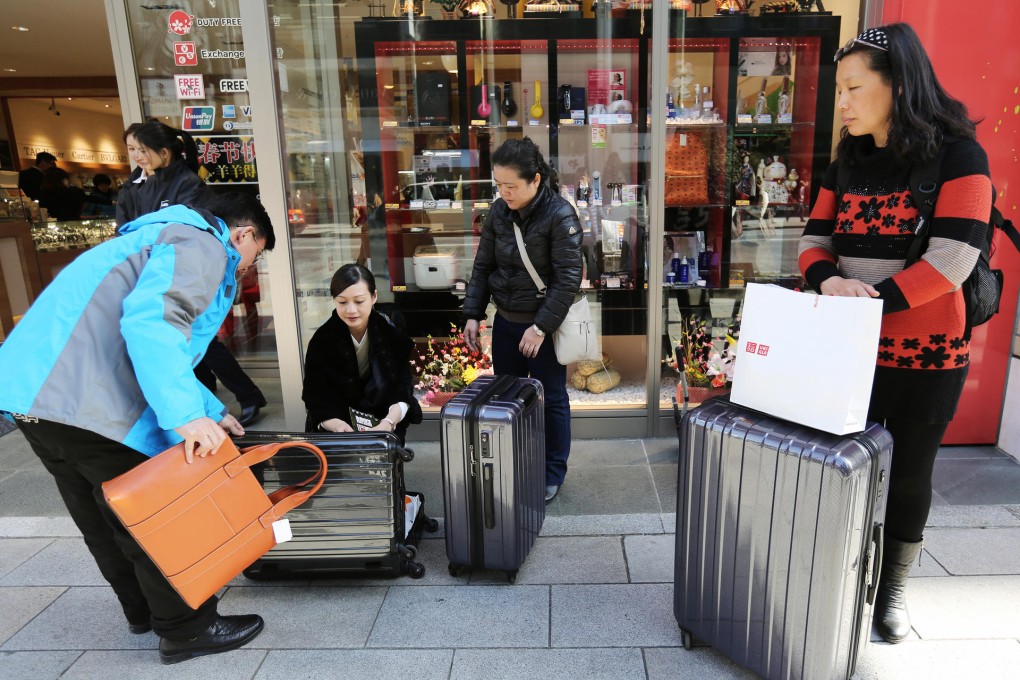New | Japan, Korea to benefit from Chinese tourist spending over Lunar New Year
Seoul and Tokyo are hot new destinations as mainland Chinese tourists look beyond Macau and Hong Kong this Lunar New Year

Japan and Korea are expected to be the new darlings of Chinese tourism this Lunar New Year, as Hong Kong, Macau and Singapore drop further down the list of must go holiday destinations.
The year of the goat will be ushered in on Thursday, setting off a global week-long spike in China's travel spending. While Hong Kong benefited greatly over the past decade from being the first port of call, its share of Chinese tourist spending is inevitably shifting as the Chinese populace becomes more experienced and worldly travellers.
"In 2014, the Hong Kong Tourism Board saw a 1.8 per cent drop in per capita tourist spending to HK$7,975," Nomura's retail analyst Katherine Chan said. "It was also the first drop in per capita spending of overnight visitors in eight years, while the number of tourists visiting Hong Kong increased 12 per cent year on year to 60.84 million visitors in 2014."
The lingering negative sentiment from Occupy protests last year, continuing anti-China activity in the New Territories this month and a general sense of visitor fatigue means mainland Chinese are looking elsewhere to do their holidaying. Meanwhile Macau's fortunes are complicated by the anti-graft campaign and little to offer visitors other than gambling, although the government and casino operators are working together to remedy that.
HSBC is banking on what it calls the "new TST". Mainland Chinese shoppers have moved on from Kowloon's shopping mecca of Tsim Sha Tsui to Tokyo, Seoul, and Taipei. Seoul is a clear winner, thanks to the Korean wave of cool, especially in fashion and cosmetics, HSBC's head of consumer goods and luxury Erwan Rambourg writes.
"We think Chinese nationals could represent close to a third of luxury sales in Korea, a staggering figure as this means the Chinese share will have virtually doubled in 12 months' time," Rambourg said. "The 'Korean wave', a social/cultural trend supported by K-pop and soap operas, is helpful in solidifying Asian opinion around the idea that 'Korean equals cool' but the products are also technically undeniably very high quality now, especially in cosmetics."
